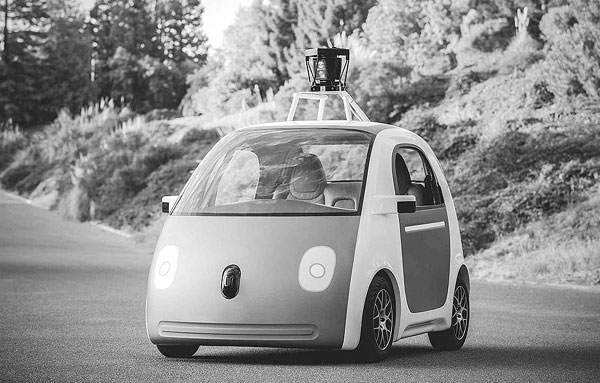Technology firms in race to launch e-cars
As Google reaffirms its commitment to driverless cars and Apple mulls developing an electric car, China's Tencent - best known for its instant-messaging app WeChat - is also on the move.
The Shenzhen-based Internet giant has struck a deal to develop smart e-cars with the electronics manufacturer Foxconn Technology Group and luxury car dealership China Harmony Auto. Foxconn manufacturers Apple's iPhones and touch screens used in some of the Tesla Motors cars.
No details were revealed over the deal and none of the companies would say when the car might enter the market.
The new partnership, said experts, will ignite a frenzy in China to develop Internet-enabled vehicles.
"The benefits for this coalition is combining the know-ledge and technology of both companies, as Tencent has the software knowledge and Foxconn have the manufacturing and hardware knowledge," said Rio Goh, who heads the Chinese division of employment advisor group Morgan McKinley.
"They are already facing competition from Alibaba and Baidu as they will also be making smart vehicles."
Tencent's rival Alibaba Group Holdings is the first among the three to launch smart vehicles. It earlier signed a $160 million investment with the State-controlled SAIC Motor Corp for Internet-connected vehicles.
Baidu Inc, China's largest search engine, said in March, the company might introduce an autonomous car as early as this year.
"All these companies are very innovative and this new business model enables these companies to further develop new products and technology," said Goh.
"We are quite positive about the future of electric/smart vehicles."
Derek Dong, group account director of research agency Millward Brown, echoed that sentiment.
"The Internet-plus is a glo-bal trend, as we can see from the rapid development of O2O (online to offline) and wearable devices in recent years. Internet companies are playing an ever important role in integrating and optimizing resources," he said.
"The model of Internet-plus will remodel the business model at a rate that shocks the world."
The partnership has further fueled the competition among Baidu, Alibaba and Tencent in foraying into the country's nascent market for Internet-connected cars, he added.
Neil Flynn, an Internet expert and portfolio manager at Alcuin Asset Management, added that the Internet-connected vehicle industry also helps Internet companies ge-nerate more personal information.
The about 100 million cars in China represents an invaluable customer base for Internet companies, and by digitizing every aspect of your life, these firms can gain a stronger understanding of who you are and what you do, he said.
"With that knowledge, they are able to generate more revenue from each user," said Flynn.
According to Dong, the logic of investment by the Internet companies is different from the traditional counterparts. The Internet companies are more like investing in the future, which makes them care less about the quick money.
"The investment logic of abandoning short-term be-nefits serves as a huge impetus of pushing the societal innovation," he said.
According to Goh, in a short to medium term, this new trend will not affect the traditional car manufacturing business. But in the long run, with all the environmental challenges, he believes it will provide strong competition.
"It takes time for people to gain awareness of these new technologies and products but as time goes by they will contribute to the development of a much stronger knowledge economy in China," he said.
The Chinese e-cars industry has been booming in recent years after the government issued favorable policies, including tax reduction and research investment.
However, to challenge the traditional gas-powered vehicles, which still dominate China, is no easy work, based on the underperformance of Tesla Motors in China, partly due to its prices that start around $100,000 and the difficulty of finding places to recharge the e-cars.
China's Premier Li Keqiang emphasized in his government work report presented to the National People's Congress in March that "everyone stands a chance to fly when there is a favorable wind blowing from behind".
"I believe with the tailwinds generated by our Internet-plus strategy, we will be able to get the Chinese economy off to a higher level," he said.
Derek Dong from Millward Brown said, China's Internet companies are advancing innovation worldwide, and with better network infrastructure, operating system and hardware innovation, the future of Internet-plus is very optimistic.
"The country could also learn from advanced expertise from other countries, like Google's driverless smart car technologies, to better equip ourselves," he said.
zhengxin@chinadaily.com.cn
|
A prototype of a driverless car designed by Google. The company said in January that it aims to have a self-driving car on the road within five years. Provided to China Daily |



















